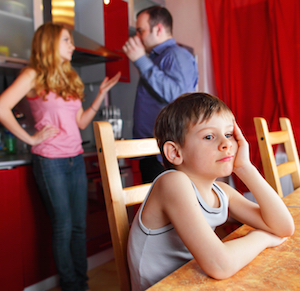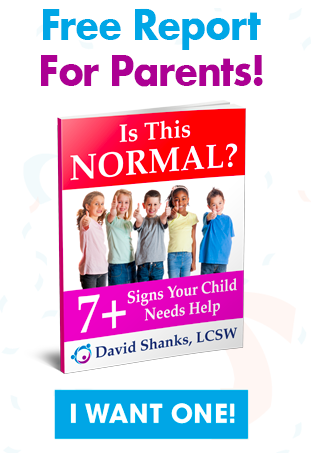 “We’ve taken away the X-Box, the cell phone, and the ski trip but that’s made things worse. He’s so angry with both of us and I’m worried about him getting physically violent. If my husband or I ask to see his homework, he lies to us and says he’s done it, or he explodes. There’s no peace in our house.”
“We’ve taken away the X-Box, the cell phone, and the ski trip but that’s made things worse. He’s so angry with both of us and I’m worried about him getting physically violent. If my husband or I ask to see his homework, he lies to us and says he’s done it, or he explodes. There’s no peace in our house.”
“I’ve tried everything and nothing works. She just won’t listen. Her grades are going down and she is more and more disrespectful. I’m embarrassed to be in public with her. Now she’s starting to hang out with the wrong crowd at school. I’m worried and I don’t know what to do.”
“He’s constantly picking fights with his sister. He complained to us that our discipline is too harsh and that he doesn’t have any freedom. We decided to try something new and let him choose the consequences but it’s just not working. Things seem even more out of control. What happened to our happy family?”
I see many parents who are in crisis over conflicting parenting styles. Many of us were raised in traditional households in which kids were expected to obey and be respectful. There simply was no alternative. And to not comply often meant stiff discipline including physical punishment. This often included verbal abuse and heavy shaming. Coming from that experience, the parents I see tend to fall into two camps. Some parents feel it is their duty to enforce discipline by any means necessary. Others are sensitive to the pain they felt in childhood and don’t want to subject their children to the same experience.
Children do need limits. In my experience, children need and want their parents to be in control. Even teens, who are testing their independence, need appropriate boundaries. What we all want is for our children to grow into mature adults and for them to learn self regulation. Kids raised with too much discipline often rebel and react with anger and self sabotage. Ironically, kids raised without appropriate limits can also react with anger. This can be confusing to both the parent and to the child. It’s important to remember that kids are not just little adults. They are in a process of development. They need parents to lead the way and set limits. This may feel good at times, and at other times may not. Both parents and kids will have growing pains in this process of helping the child develop their own judgment and discernment. And in many ways, it is a process of trial and error with no handbook. Parents can help the child develop an inner compass that will serve them well after they are done with school, and on their own.
Parents are often conflicted both within themselves and particularly with each other over these issues. This creates confusion and tension which only makes the situation worse. Kids can pick up on this and exploit the rift. I strongly believe that what is best for both parents and children, is that the parents present a unified front. This takes communication between the parents. Sometimes this can often be facilitated by a skilled therapist.
Children feel safe when they feel their parents are working together and the family rules and expectations are known and dependable. At the same time the most important gift we can give our kids is seeing them and acknowledging their uniqueness and specialness. Rules can be modified to fit the child in their unique developmental situation. For example, one of the most agonizing situations for many parents is setting rules for new drivers.
 Every teen is different. Ultimately we have to be careful observers of our children and to be in touch with our own gut feelings – our parental instincts – and to be willing to stick by them. That can be difficult. In the situation of the teen driver it’s easy to mistake our fears for a deeper intuition which would tell us that the child is ready to have a little more freedom than we may be comfortable with; or, that the child isn’t ready and we will have to face their anger and unhappiness, trusting that eventually, your child will understand. (It may take a while.)
Every teen is different. Ultimately we have to be careful observers of our children and to be in touch with our own gut feelings – our parental instincts – and to be willing to stick by them. That can be difficult. In the situation of the teen driver it’s easy to mistake our fears for a deeper intuition which would tell us that the child is ready to have a little more freedom than we may be comfortable with; or, that the child isn’t ready and we will have to face their anger and unhappiness, trusting that eventually, your child will understand. (It may take a while.)
What happens when parents disagree? Like many things, this demands trust and communication. And ultimately that is the basis of good parenting.
David Shanks, LCSW is a therapist in Carrboro/Chapel Hill


